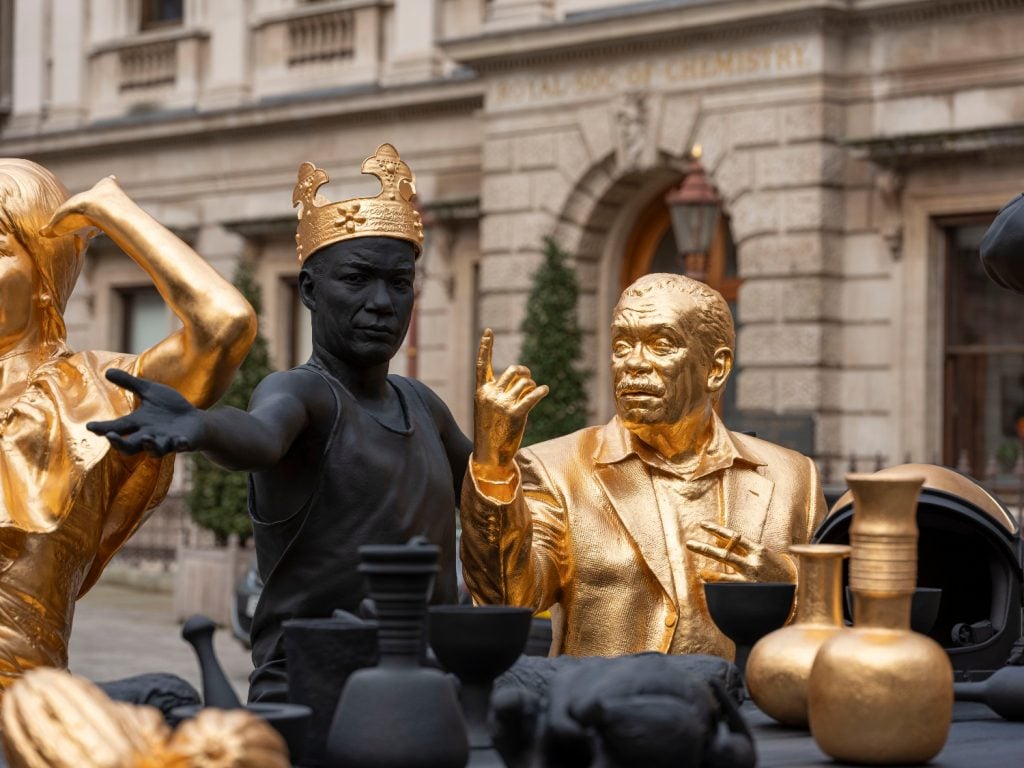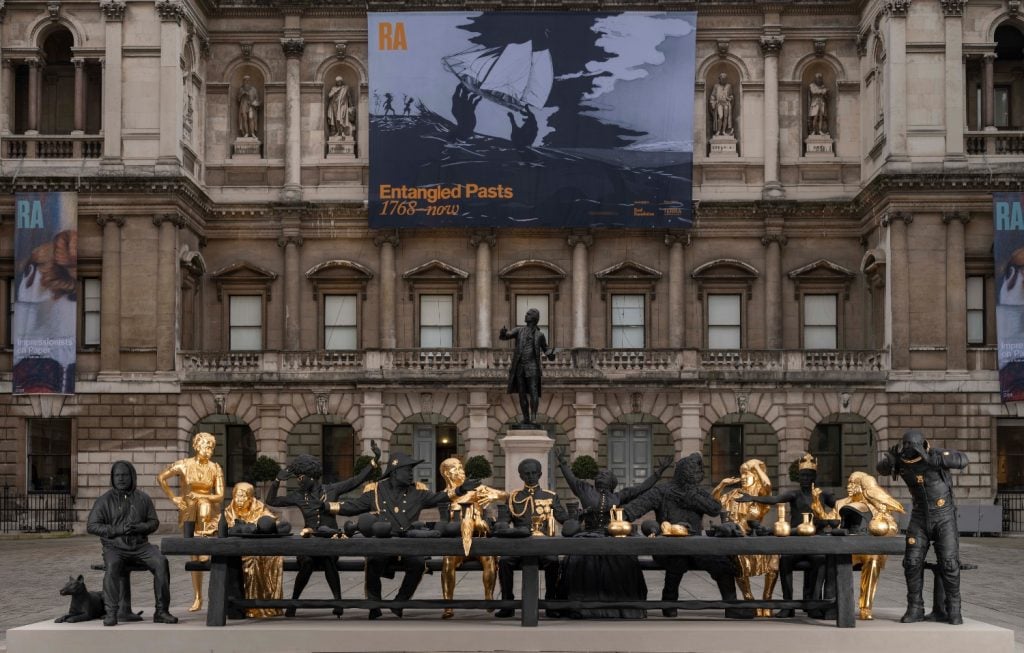On View
How Tavares Strachan Reimagined Leonardo’s ‘Last Supper’
The mammoth public sculpture envisions a meeting between notable Black activists, artists, and scientists from the past.

The mammoth public sculpture envisions a meeting between notable Black activists, artists, and scientists from the past.

Jo Lawson-Tancred

The Royal Academy in London has unveiled a monumental new public sculpture by the Bahamian-born interdisciplinary artist Tavares Strachan. The First Supper (Galaxy Black) (2023) has been installed in the courtyard as part of “Entangled Pasts, 1768-now: Art, Colonialism and Change,” a new exhibition that puts the RA’s historic artworks in conversation with contemporary masterpieces to explore and challenge narratives around empire, race, and colonialism. It opens today and runs through April 28, 2024.
Inspired by one of art history’s best known paintings, Leonardo da Vinci’s The Last Supper (ca. 1495-98), the mammoth bronze sculpture imagines a convivial gathering between notable historical figures from Africa and its Diaspora who, in reality, never met because they were separated by time and place. Among these 12 Black scientists, activists, and artists are the abolitionist Harriet Tubman, the gay rights campaigner Marsha P. Johnson, the U.S.’s first Black congresswoman Shirley Chisholm, the poet Sir Derek Alton, and the gospel singer Sister Rosetta Tharpe.
Less prominent figures that Strachan has chosen to highlight include the Brazilian resistance fighter Zumbi Dos Palmares, the nurse Mary Seacole, the astronaut Robert Henry Lawrence, and the explorer Matthew Henson. The 13th figure is a self-portrait of Strachan himself in the guise of Judas. The central figure who takes the place of Jesus is Emperor Haile Selassie I of Ethiopia, who some Rastafarians consider to be the returned messiah.

Tavares Strachan, The First Supper (Galaxy Black) (2023). Image courtesy of the artist and Perrotin, collection of Glenstone Museum, Potomac, Maryland.
The long table of animated figures faces museum visitors as they turn into the courtyard from Piccadilly, welcoming them in. The group’s various gestures and expressions lend the work a lively theatricality, and it cuts a striking figure against the RA’s aged gray facade thanks to Strachan’s use of black patina and gold leaf.
Another statue of the RA’s founding president, the painter Sir Joshua Reynolds, can be seen standing on its usual perch just behind. Installed in 1931, its presence reminds us that for centuries these kinds of public monuments were erected almost exclusively to commemorate white men.
“I think it’s important for us to have an archive of the stories of our folks; one that doesn’t necessarily centre Europe, modernism or any -ism that is not indicative of us,” Strachan commented for the show’s catalog.
Strachan was born in 1979 in Nassau, Bahamas and is currently based between New York City and Nassau. His conceptual practice has long brought to light marginalized histories, which is the focus of his ongoing project The Encyclopedia of Invisibility. It was born out of Strachan’s research into Matthew Henson, the first person to reach the North Pole in 1909. For over a century, Henson’s achievement went unrecognized and the milestone was mistakenly credited to his fellow explorer Robert Peary instead.
“Entangled Pasts, 1768-now” opens today and runs through April 28, 2024.
